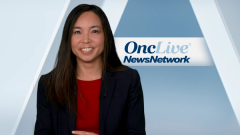
Looking Ahead: Unmet Needs in AML Management
A look at emerging treatments and remaining unmet needs in the overall treatment landscape for acute myeloid leukemia.
Episodes in this series

This is a synopsis of an Insights series featuring Catherine E. Lai, MD, MPH, of the University of Pennsylvania.
Dr. Catherine E. Lai discussed several key areas of focus to continue improving outcomes for patients with acute myeloid leukemia (AML). While treatment has advanced, we are still not curing patients with chemotherapy alone. Optimization of chemotherapy regimens is needed, including triplet combinations which are more effective but also more toxic, requiring balancing of efficacy and toxicity. Questions remain regarding optimal dose, duration, and sequencing of agents based on mutations.
Regarding unmet needs, Dr. Lai highlighted p53-mutated AML as very challenging, with poor responses to standard therapy and investigational agents like CD47 inhibitors. More effective approaches are critically needed for this population.
For community oncologists treating AML, Dr. Lai emphasized the importance of establishing partnerships with academic centers. She noted that co-management approaches should be tailored and flexible based on individual patient needs. For those using more hypomethylating therapy like azacitidine/venetoclax, needs may differ from oncologists rarely using these regimens. Communication is key - the academic center could manage cycle 1 and transition to community for convenience, or provide monthly check-ins. The ultimate goal is improving patient care; academic collaborators are happy to help provide specialized input for optimal management.
In conclusion, while progress continues, curing AML remains an unmet need. Research is ongoing to refine chemotherapy regimens and identify more effective options for resistant mutations like p53. Dr. Lai advised community oncologists to leverage academic partnerships to enhance patient care, using a flexible, patient-centered approach to determine optimal co-management strategies for applying the latest expertise and personalized AML treatment plans.
*Video synopsis is AI-generated and reviewed by OncLive editorial staff.







































